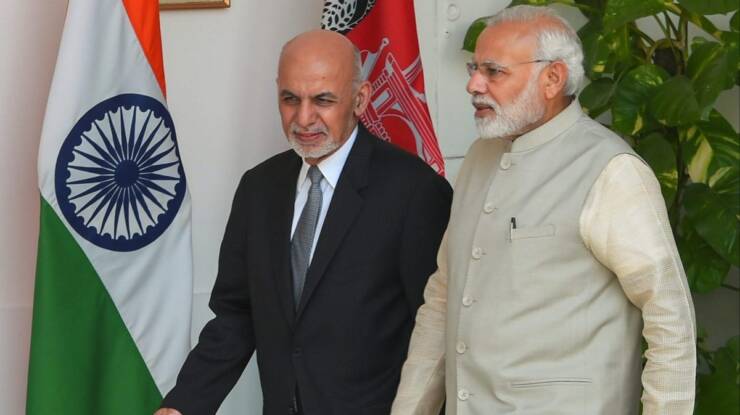
It is coming back to where it all started two decades ago. The Taliban this time is in the driver’s seat, it is on a relentless northward march taking town after town, district after district. It ominously appears the Afghan nation may fall prey to the machinations of the Taliban well before the end of this year.
While America is packing its bags and leaving home, ordinary Afghans who fought against the Islamist insurgent group and helped the US are now trembling in fear as to what would happen to them if and when the Taliban comes back to power.
Changed Security Scenario
The rapid gains being made by the Taliban and the fast deteriorating security situation in Afghanistan, which has put the legitimacy of the democratic government in Kabul at stake, highlight a new changed security scenario with regard to Pakistan and India who are the other primary stakeholders in the Afghan peace process.
Undoubtedly the possible return of the Taliban has the Pakistani deep state and the military establishment elated because they would now be in a firm position to dictate the internal affairs of Afghanistan.
It provides Pakistan a new opportunity to undermine India’s position as a key participant in the Afghan affair and eventually achieve its (Pakistani) objective of strategic depth, to use Tilak Devasher’s words, so eloquently articulated in his book “Pakistan: Courting the Abyss”.
The possible return of the Taliban constitutes a setback for India, which has for years remained staunchly anti-Taliban and during the early years of the Taliban rule gave covert support to the Northern Alliance to oppose Taliban rule. Nevertheless, New Delhi has tried to change its policy of not engaging with the insurgent group in recent years.
But that hasn’t resulted in much fruitful results given Taliban’s historical closeness to the Rawalpindi Generals. From the security perspective, India needs to be worried given the fact that the Taliban has provided shelter to proscribed Islamist terrorists who have been blacklisted by the UN.
Also, India cannot rely on the Taliban to remain committed to the Afghan peace accord’s terms that they won’t let the country become a haven for terrorist groups like the Islamic State or the Haqqani Network. India, therefore, is on a pretty patchy turf when it comes to the outcome of the Afghan war.
New Strategy Needed
Given the deteriorating security conditions in Afghanistan, it is imperative that the mandarins of India’s foreign policy craft a new strategy that can deal with New Delhi’s core regional security concerns following the complete exit of US troops from Afghanistan. The security strategy could include some of these elements:
Firstly, help build a consensus among ordinary Afghans about the need to develop a common social compact in accordance with Afghan customs and traditions that can harmonise not just the traditional Afghan lifestyles but also conform to modern liberal democratic and cultural principles.
Secondly, collaborating with the Afghan security forces, providing them training, equipment and taking part in joint war exercises can go a long way in dealing with the Taliban militarily. The Afghan armed forces need to be strengthened in order to deal with the Taliban.
Thirdly, holding the Taliban accountable for the human rights abuses that they committed in the past. India should at relevant international platforms make it absolutely clear that the gains in democratic development that Afghanistan made in the past two decades must be strictly preserved and must not be allowed to be tinkered with. The rights and liberties of woman, children should be protected and any violation will not be tolerated.
Lastly, a prosperous Afghanistan can become a lucrative market for Indian exports. Besides this Afghanistan can help become India’s gateway to Central Asia, which India has so relentlessly pursued, hence New Delhi should invest in building new channels of communication and transportation to exploit this opportunity.
Conclusion
India must remain steadfast to the Afghan situation because a disturbance in Afghanistan will have ramifications with regard to India’s regional security concerns. At the same time, India must be careful of the Pakistani tactics to undermine New Delhi’s position and must resolutely oppose any such attempts.
– The writer is currently working as a Trainee Research Associate at Defence Research and Studies (dras.in) and is a columnist. The views expressed are personal and do not necessarily reflect the views of Raksha Anirveda








